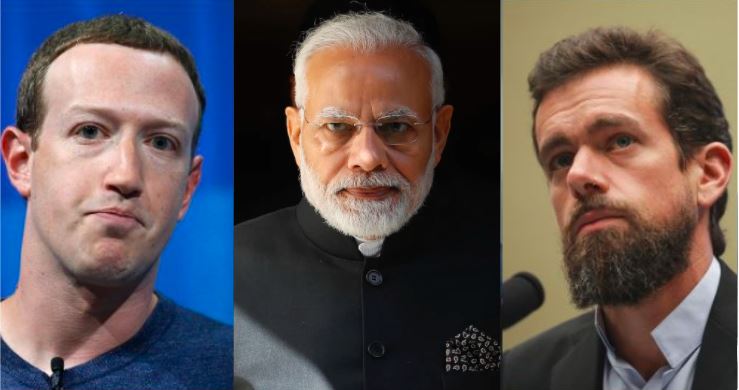After the central government headed by Prime Minister Narendra Modi put its foot down and made sure that the social media companies, digital publishers and OTT platforms conformed to the revised IT rules, the big techs have coalesced together and started a campaign to arm-twist India in a last-ditch effort to usurp some of the lost power.
A feature-length article published in Reuters titled ‘Analysis: Frequent run-ins with India gov’t cloud U.S. tech expansion plans’ argues that the tech companies in the US were reviewing their strategy where India was thought of as an alternative to China.
“Three senior executives familiar with the thinking of major US tech firms said perceptions of India being an alternative, more accessible growth market to China are changing, and that longstanding plans for India’s role in their operations are being reviewed,” read the editorial.
One of the executives, who works at a US tech firm was quoted as saying, “There always used to be these discussions to make India a hub, but that is being thought through now,” whilst adding, “This feeling is across the board.”
The Silicon Valley behemoths, using their well-oiled PR teams can plant such stories in the media and try however much they want to spook the government that they will pull the plug. However, the truth of the matter is that the Indian market is the golden goose laying the golden egg that no company looking to earn profit can turn its back towards.
Thus the posturing and fake review meetings might work nicely in the form of op-eds but the reality is that the big tech is salivating at the prospect of a booming Indian market that hasn’t even achieved a fraction of its real potential.
WhatsApp has 400 million users in India and to attract small businesses through WhatsApp, Facebook last year invested $5.7 billion in Reliance Industries Ltd’s. Meanwhile, Amazon has committed as much as $6.5 billion to invest in the country.
Moreover, Google’s parent company invested $4.5 billion into the country’s largest telecom platform Jio last year from a newly created $10 billion fund earmarked for investment in India over five to seven years.
Commission approves acquisition of 7.73% equity share capital of Jio Platforms by Google pic.twitter.com/U247YcYKEc
— CCI (@CCI_India) November 11, 2020
With such big, astronomical numbers already pumped in the Indian market, it doesn’t appear that any of these tech giants are uprooting their tents and dropping anchor elsewhere. India is currently one of the fastest-growing markets, despite a pandemic slowing down the globe and thus if a company wants to stop its operations, it can do so at its own peril. Capitalism will ensure that other companies are there to fill the void.
Tech giants and their tryst with the new compliance laws
As reported by TFI, after the deadline to adhere to the new guidelines elapsed last month on May 26, social media platforms such as Facebook, WhatsApp, Google, and Twitter ran the risk of losing their status as “intermediaries” and could have become liable for criminal action if they did not comply with the revised regulations.
While initially, all the aforementioned companies tried to stall adhering to the policy change, the government used an iron fist to set things in motion.
Twitter was served a stern message when Delhi Police paid a surprise visit to its office while a flustered Facebook took pre-emptive measure and announced rather instantly that it was ready to comply with the provisions of the IT rules. Although Facebook sent its subsidiary WhatsApp to the court to sue the government, it had to return empty-handed and accept the government’s decision. Similarly, Google dropped its charade timidly and eventually even the microblogging platform had to come around the decision as well.
The tech giants are saddened that their ambitions of creating a digital colony in India have been quashed by the government. The frustration is simply coming to the surface through such articles.
